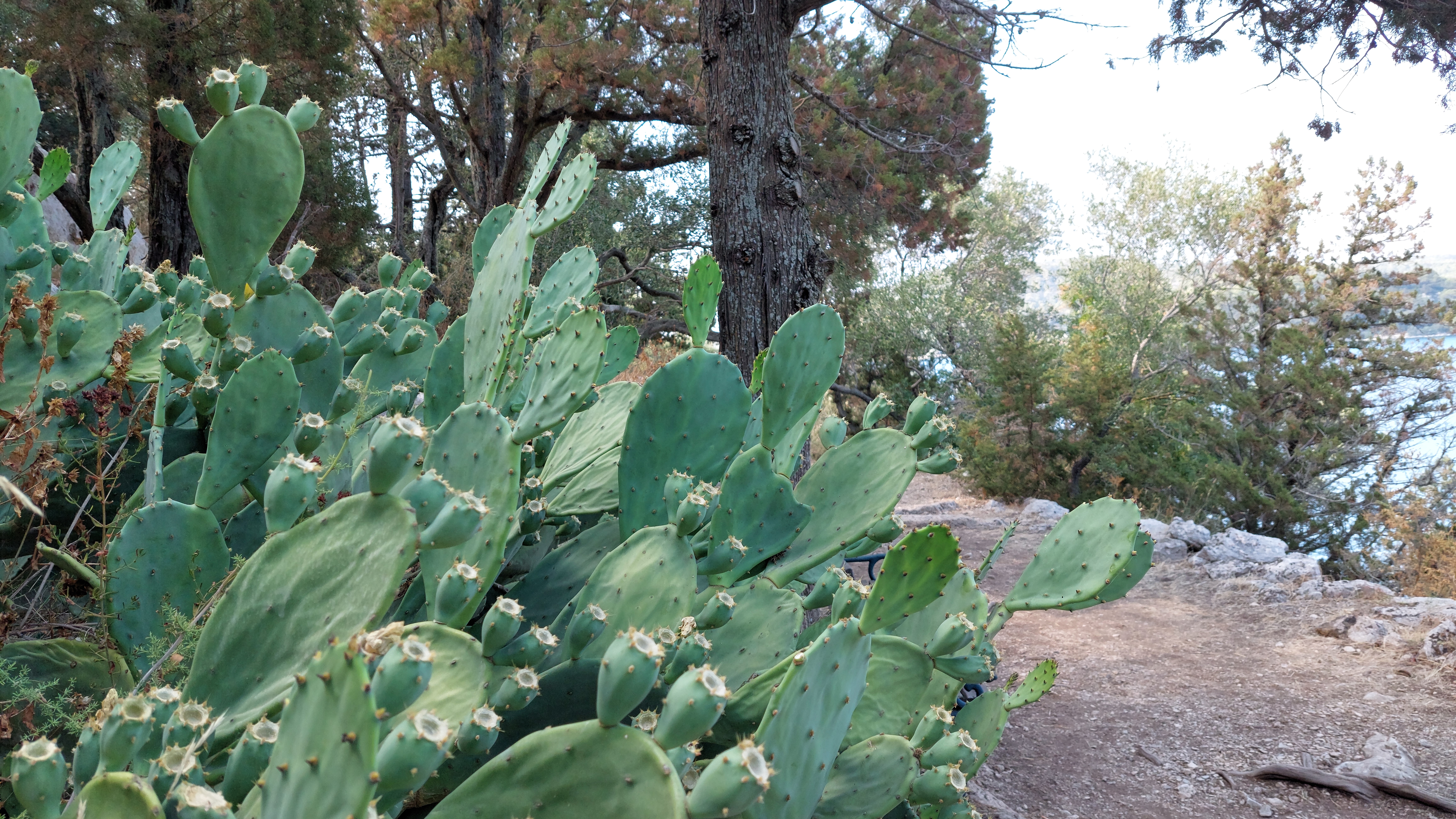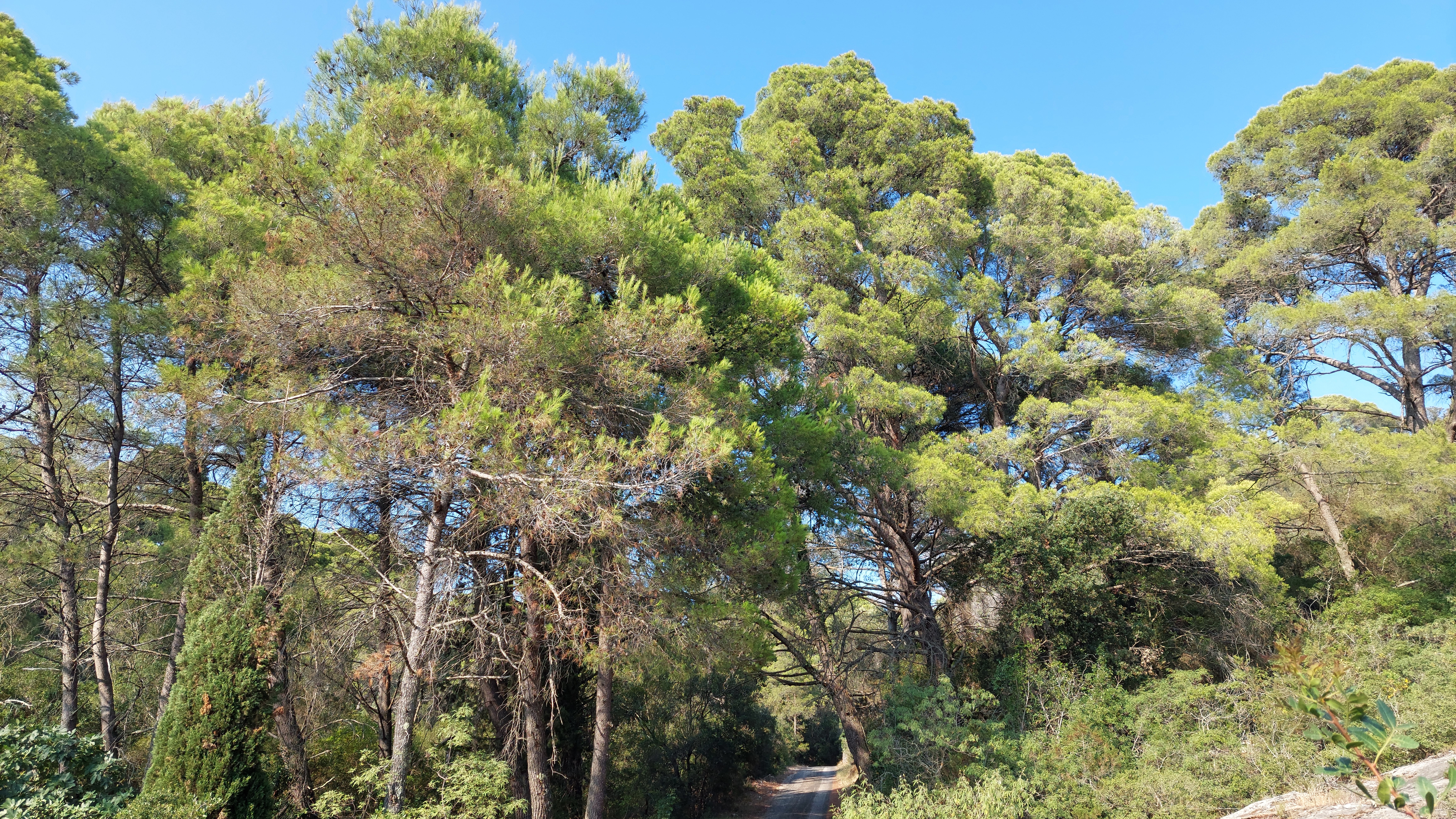"when at last he got to the island which was his journey’s end,
he left the sea and went on by land till he came to the cave where the nymph Calypso lived.
He found her at home. There was a large fire burning on the hearth,
and one could smell from far the fragrant reek of burning cedar and sandal wood. As for herself,
she was busy at her loom, shooting her golden shuttle through the warp and singing beautifully.
Round her cave there was a thick wood of alder, poplar, and sweet smelling cypress trees,
wherein all kinds of great birds had built their nests—owls, hawks,
and chattering sea-crows that occupy their business in the waters."
(Homer: Odyssey)
In the fifth book of the Odyssey, an enchanting island appears, home of Calypso nymph. Many looked for the island of Ogygia, where Ulysses spent seven years in the captivity of the beautiful braided goddess, before at the command of Jove the nymph finally let him go, providing him with food, drink and guidance. Calypso vainly promised eternal youth and immortality to the hero, the romance could not last forever, the word of Jove was command. The nymph could not leave her island, but according to the legends, she waited for the return of her love forever.
Ogygia has been searched for in Greece, (although none of the Greek islands fits perfectly for Homer description), in the island of Gozo, in Egypt, moreover, even in the legendary Atlantis. The Island of Mljet upon to the Dubrovnik Times, due to its natural endowment, is one of the relevant possibilities. There is a living legend on the Island of Mljet, that once upon a time, in ancient times, the queen of the island was a lady who lived to a ripe old age. Babino Polje bears her name (the field of the elderly lady, the "baba" word in Croatian means elderly lady, or grandmother), this is the largest settlement on the island, and nearby there is the Cave of Ulysses.
According to a local legend, Odysseus was shipwrecked on the rock of Ogiran, and he found shelter in the cave. This rock on the tide is fully below water, so it is a real danger to sailors.
We can follow the fate of Ulysses at Homer until then, up till he finally can return to his home in Ithaca. We know less about Calypso, the daughter of Atlas in the Greek mithology, but as a nymph, her power could not compete with the gods of Olympus. However, according to Homer, she did not accept her fate so easily:
"“You gods,” she exclaimed, “ought to be ashamed of yourselves.
You are always jealous and hate seeing a goddess take a fancy to a mortal man,
and live with him in open matrimony. ...
And now you are angry with me too because I have a man here.
I found the poor creature sitting all alone astride of a keel,
or Jove had struck his ship with lightning and sunk it in mid ocean,
so that all his crew were drowned, while he himself was driven by wind and waves on to my island.
I got fond of him and cherished him,
and had set my heart on making him immortal,"
(Homer: Odyssey)
Beauty, poetry, generosity, injustice and sense of justice, love, finding each other and letting go: are all in the immortal character of the nymph. Even today, on the green Island of Mljet, overgrown with cypresses, Aleppo pines, untouched forests and olives, it is worth following the footsteps of Homer's heroes, whether we look for them here or elsewhere.
Anna Somfai

The most of Mljet is covered by Aleppo pines
You can read about Mljet sights here!